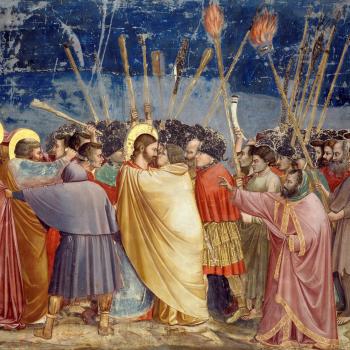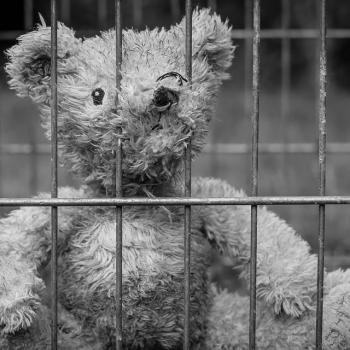Holy Thursday is all about the institution of the Eucharist, and therefore all about the priesthood.
A priest is a go-between. He mediates God to human beings and human beings to God.
A couple of years ago, Garry Wills wrote a disastrous book trying to argue that the priesthood was rubbish. It was disastrous for the very good reason that, apart from the biblical concept of the priesthood of Jesus, enormous swaths of biblical revelation and of the mission of Jesus make absolutely no sense.
If there is anything utterly certain about Jesus beyond his birth and his death (speaking from an earthly perspective) it is that he instituted the “new and eternal covenant in my blood”. The one thing the Church marched into history doing, above all else, was celebrating the Eucharist. And the Eucharist meant nothing other than a new covenant. And in Jewish thinking, a new covenant meant a new priesthood.
The entire book of Hebrews is about this new covenant and new priesthood. It’s the reason John mentions that Jesus’ garment was seamless, woven from top to bottom–because that is a priestly garment.
Jesus does not come, in the New Testament, as a teacher of ethics or a social reformer or a conquering politician or a military hero. He comes as a priest-king. When he is arguing with the Pharisees about the identity of Messiah he goes straight to Psalm 110, in which the Son of David is declared a “priest forever according to Melchizedek”. Priest King is the job description of the Son of David, not a weird religious add-on for a guy who just wanted to say Niceness was nice.
And the core of the priesthood is and always has been sacrifice. That’s what priests do. And in the Mosaic covenant, a crucial (though not the only) form of sacrificial offering is blood sacrifice.
Ancients grasped something primordial here and it rings down through the the Old Testament from the covering of Adam and Eve with skins, through the offerings of Noah and Abraham Moses and David: somehow or other the universe is held together by offerings of bloody death. Or at any rate, our offerings of bloody death in cattle, sheep, and goats somehow point, in a mystery, to something that will Set Things Right.
That’s why John the Baptist calls Jesus the Lamb of God. Because the priest is not merely to be the one offering the sacrifice: he is to be the sacrifice as well. Instead of tying up a lamb and slitting its throat, the priest will himself be the lamb. His blood will somehow heal the world and set things right. And by his passage through the Country of the Dead and back to the Land of the Living, he will offer man to God (in death) and (in the Resurrection and through the Eucharist) offer God to man in his divinized and glorified flesh. And that will heal not only human beings, but the entire universe in the end.
None of this makes sense apart from an essentially priestly conception of what Jesus was doing. When he speaks of “giving his life as a ransom for many” nothing but this fills the bill.
And so, the Church recalls tonight both the great High Priest and all the little, derivative priests, big and small, famous and obscure, who have followed in his train, ordained in succession the Priest according to Melchizedek to live out that command to “Do this in memory of me.”
No Eucharist, no new covenant. No priesthood, no Eucharist.











